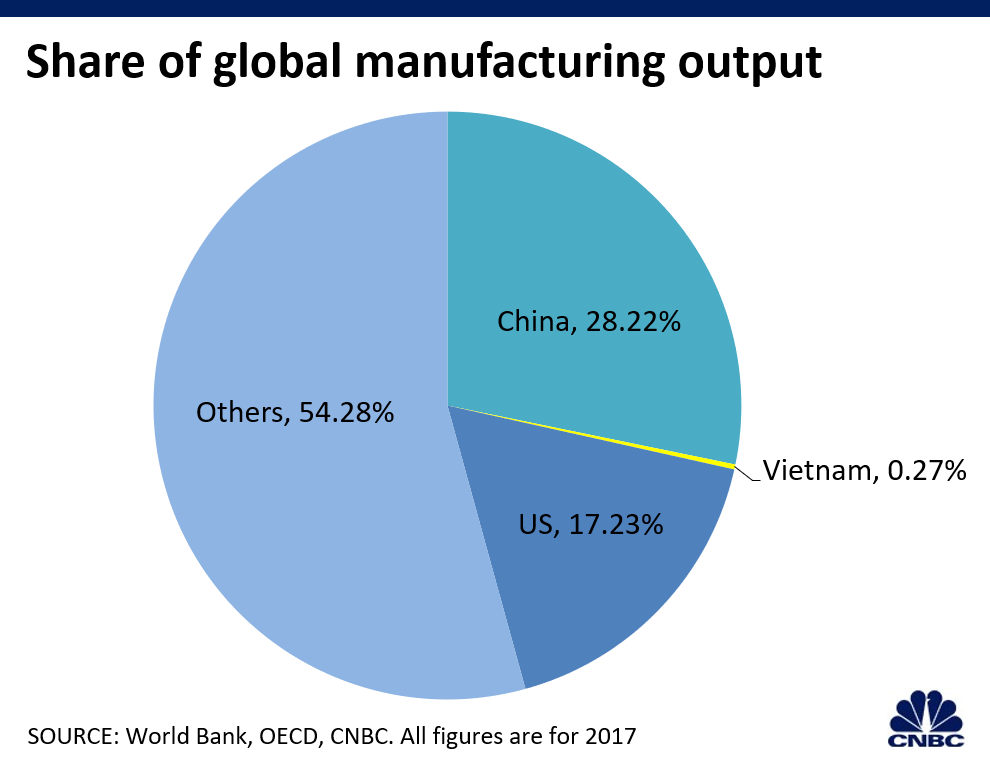A Chinese manufacturing worker.
TPG | Getty Images
SINGAPORE — U.S. companies aren’t likely to pack up their manufacturing operations in China and move them back home amid the trade war between Washington and Beijing, according to a prominent economist.
That’s because supply chains are “very difficult to put together, and equally difficult to disentangle,” said Stephen Roach, a senior fellow at Yale University.
Still, several American firms have made plans to diversify their productions out of China since the trade war started last year. But few have said they intend to completely leave China – or move all of their manufacturing back to the U.S. as President Donald Trump ordered.
“Clearly some components … part of the source can be pulled out of China and into other countries. But to take an iPhone and bring the iPhone back home, forget it, just not going to happen in a way that would provide affordable product for American users of that device,” Roach said at the Morgan Stanley Asia Pacific Summit in Singapore last week.
Components that make up products such as the iPhone are typically made in different countries before being assembled in one location and shipped to their final destinations.
These manufacturing chains that span multiple locations take many years to form and allow products to be made using the lowest possible costs, trade experts have said.
Disrupting that ecosystem would add to costs, which potentially could be passed on to consumers, economists have warned.

Southeast Asian countries such as Vietnam, Malaysia and Thailand have been some of the biggest beneficiaries of supply chain shifts over the past year. But experts have said that no single economy could replace China as a global manufacturing powerhouse.
The complexity of existing supply chains tying the world’s economies together also means that it will be difficult for the U.S. and China to “decouple,” said Roach, referring to the increasing disconnect between the two largest economies in the world.
“What we see coming out of the trade conflict is trade diversion, not an unwinding of global commerce built on these multi-country supply chains,” added the former chairman of Morgan Stanley Asia.

